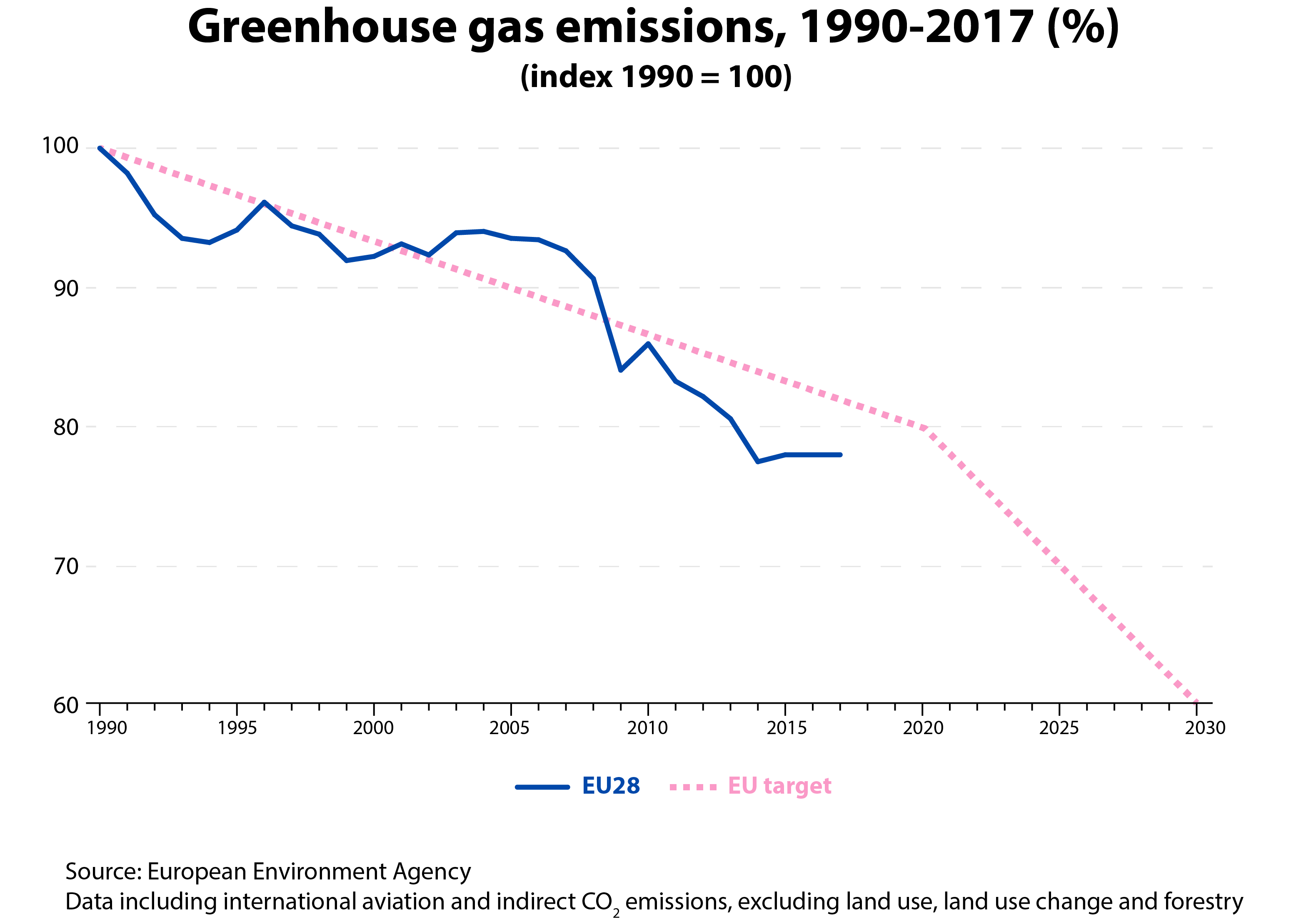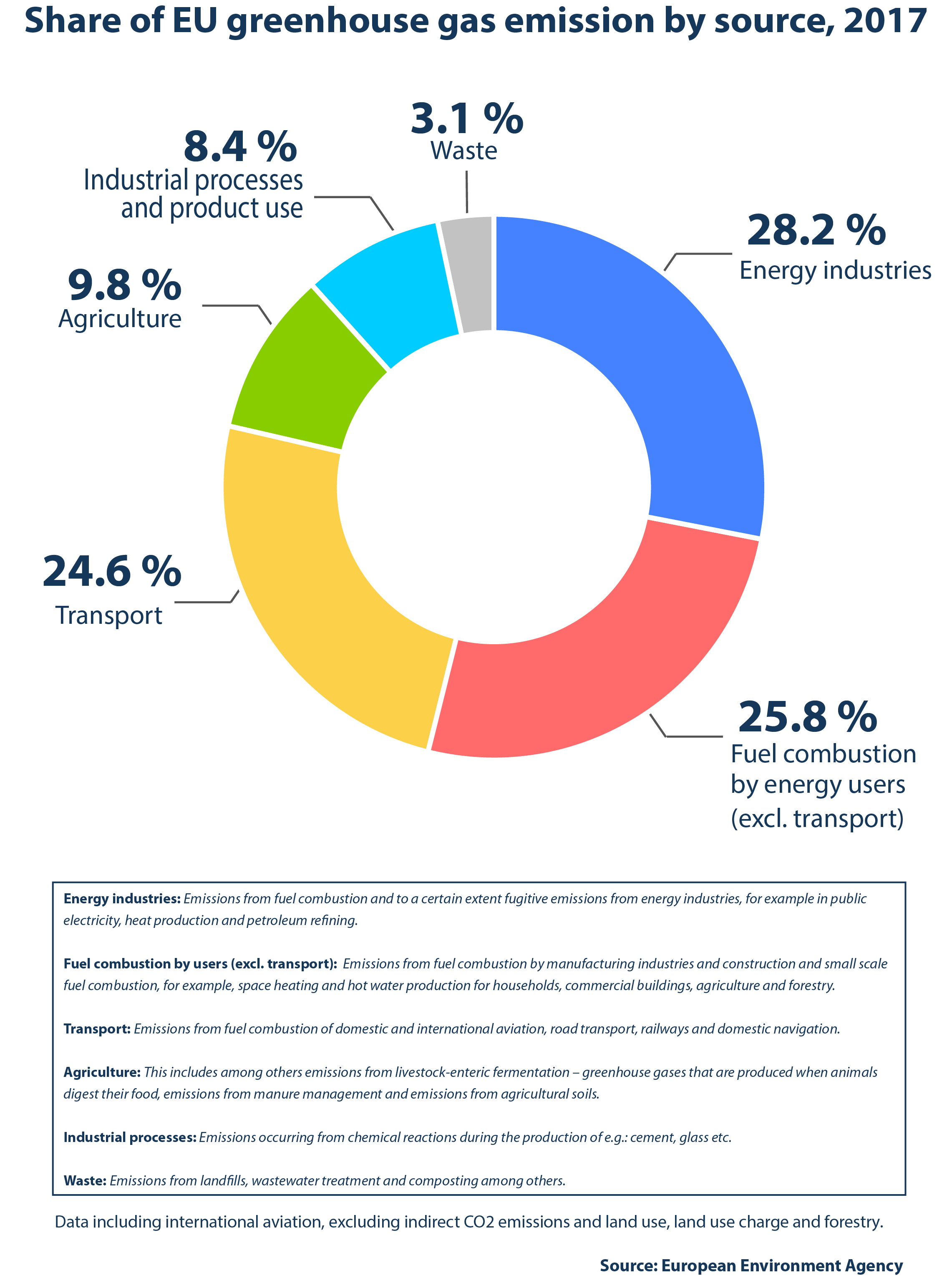4.1 How are emissions of greenhouse gases by the EU evolving?
Climate change is a threat to sustainable development. After years of extensive research, the scientific community agrees that man-made greenhouse gas (GHG) emissions are the dominant cause of the Earth’s average temperature increases over the past 250 years (IPCC, 2014). Man-made GHG emissions are primarily a by-product of burning of fuels in power plants, cars or homes. Farming and waste decaying in landfills are also sources of GHG emissions.
EU greenhouse gas emissions declined steadily between 2010 and 2014, after which the trend changed with slight increases in 2015 and 2017, and only a small decrease in 2016.
In 2017, EU GHG emissions were down by 22 % compared with 1990 levels, representing an absolute reduction of 1 240 million tonnes of CO2 equivalents, putting the EU on track to surpass its 2020 target, which is to reduce GHG emissions by 20 % by 2020 and by 40 % by 2030 compared with 1990.
In 2017, the energy producing industries had the largest share (28.2 %) of total greenhouse gas emissions, followed by fuel combustion by users (25.8 %) and the transport sector (24.6 %). Compared with 1990, the share of most sources decreased, transport increased however from 15.1 % in 1990 to 24.6 % in 2017 and agriculture increased slightly.

